The following is a sermon I will preach at St. Paul’s Parish, Church of Ireland, Banagher, County Offaly, Republic of Ireland, on 11 September 2011, the tenth anniversary of the Al Qaeda terrorist attack on the World Trade Center, the Pentagon, and possibly the White House (the third of three hijacked planes crashed into a field in Pennsylvania when passengers fought the hijackers). The closing prayer is adapted from a litany adapted by the Rev. Paul Gaston from WCC materials.
Good morning! Let me tell you a little bit about who I am and how I happen to be standing in front of you offering a few thoughts about our lessons from Holy Scripture on this tenth anniversary of the Al Qaeda attack on the World Trade Center.
I am a priest of the American Episcopal Church, a part of the Anglican Communion. In our church it is the usual practice for clergy to take sabbaticals after some period of service, usually somewhere between five and seven years in a given parish. I’m the rector of St. Paul’s Parish in Medina, Ohio, and have been since the summer of 2003; was unable to take a sabbatical in the normal course because of a variety of obstacles, but this year it proved possible, so here I am spending time in Britain, Ireland, and Scotland visiting places important in Celtic Christian history, reading and translating old Irish hymns, and arranging some music.
Part of my sabbatical design was to also spend time with my adult children, who with their partners have each spent a week with me based here in County Offaly and visiting different places around the country. This is my fourth trip to Ireland, so I had some ideas of things they might like to do; they had places they wanted to see; and they found more things to do and places to visit once they got here. So I’ve driven all over this island and gone to many places many of you may never have seen. (I have found in my own life that my wife and I only visit attractions near where we live when we have guests and there are many places in the Cleveland area that, after eight years of living there, we’ve still not been. So I suspect the same may be true of you.)
One of the places that I visited for the first time while my son Patrick and his wife Michael were here last week was Kilmainham Gaol. As one interested in Irish history, you would think that I’d have gone there before now, but it just never happened until last Monday. It was a fascinating place to see and our tour guide’s comments about the actions of the British officials at the time of the Easter Rising of April 24, 1916 got me to thinking about the reaction of the American government to the events of 9/11, and both seem to me to highlight something about our lessons from Scripture today.
You know your own history, I’m sure, but let me just remind you that Rising was not popularly supported! It caused a great deal of death and destruction and there was considerable antagonism towards the rebels. After their surrender on April 29, as they were marched away by the British troops, they were hissed at, pelted with refuse, and denounced as “murderers” and “starvers of the people”. The British soldiers had to protect them from the civilians!
It was what happened just a few days later that turned the tide of public opinion – the courts martial and subsequent executions of the Volunteer leaders: Patrick Pearse, Thomas MacDonagh and Thomas J. Clarke on 3 May, of Joseph Plunkett, William Pearse, Edward Daly and Micheal O’Hanrahan on 4 May, of John MacBride on 5 May, of Eamonn Ceannt, Micheal Mallin, J.J. Heuston and Cornelius Colbert on 8 May, and James Connolly and Sean MacDiarmada on12 May. As well, the tale of the hastily arranged pre-execution wedding of Joseph Plunkett and Grace Gifford, and the treatment of the couple by the authorities affected public sentiment.
Now, I don’t want to suggest in any way that the Al Qaeda terrorists who flew those planes (and their innocent passengers) into the World Trade Center, the Pentagon, and that field in Pennsylvania are the moral equivalents of the leaders of the Rebellion; they are not. But I would like to suggest that the subsequent actions of the United States government led at the time by President George Bush bear an uncomfortable resemblance to those of the British authorities in 1916.
On September 12, 2011, the tide of world opinion was essentially the same as that of the Irish people on April 24, 1916 – it ran decidedly against the Muslim extremists just as Irish opinion ran against the leaders of the Rising. But just as the British authorities squandered the goodwill of the Irish people by their vengeful and unnecessarily quick executions of the Volunteers, the American authorities squandered world-wide goodwill toward America by starting not one but two vengeful and unnecessary wars in Iraq and Afghanistan, one of which continues to this day and is likely to continue for the foreseeable future, both of which have proven exceptionally costly to the people of those countries, to America, and to the whole world.
Recently, Robert Hutchings, Dean of the Lyndon B. Johnson School of Public Affairs at the University of Texas in Austin has said, “Sept. 11, 2001 was a watershed event in this country and throughout the world. Now, with the passing of 10 years, it is a unique time for reflection.” Similarly, your president Mary McAleese has referred to the Easter Rising as “that watershed event in Ireland’s narrative.”
Which brings me to today’s Scriptures….
In our reading from the Book of Exodus we are told that “the waters were divided. The Israelites went into the sea on dry ground, the waters forming a wall for them on their right and on their left.” The Exodus was a watershed event par excellence, one might say, the major turning point in the history of the Hebrew people, the one to which they look back as the moment which defines who and what they are, the one which they re-enact each year in the Feast of Passover as the defining moment of their community.
We should note that the response of the national authority (Pharaoh and his army) to the departure of the Hebrews was not terribly different from the response of the British authorities to the Easter Rebellion nor of the American administration to the attacks of 9/11 – it was military reaction, a violent reaction, and ultimately a response which has failed. Our world is neither safer nor more peaceful than it was a decade ago; some would argue it is just the opposite.
As history has shown over and over in many countries and many contexts, such responses by those in power are ultimately doomed to failure – the
response of the British Raj to the nonviolent revolt of the Indian people led by Mahatma Gandhi, the response of segregationists to the Freedom Riders in the American South and the Civil Rights movement of Martin Luther King, Jr., the response of the Apartheid regime of Southern Africa to efforts of the non-white population – all echo and repeat the response of Pharaoh and his army to the freedom march of the Hebrews. We and our political leaders again and again, over and over forget the lessons of history.
Again, I do not want to suggest in anyway that the murderers who killed 3,000 or more people on September 11 are equivalent to the Hebrews, the Irish Volunteers, or those who marched for freedom in India, America, or South Africa. But I do want to suggest that the responses of those in power in all those instances were similar and all resulted from our human failure to learn the lessons of history and of Holy Scripture, that ultimately the violent military reaction is doomed to failure.
In contrast, in the Gospel lesson for last Sunday, Jesus laid out a plan of conflict resolution for the community we call the church. You may remember that in last week’s lesson Jesus said: “If another member of the church sins against you, go and point out the fault when the two of you are alone. If the member listens to you, you have regained that one. But if you are not listened to, take one or two others along with you, so that every word may be confirmed by the evidence of two or three witnesses. If the member refuses to listen to them, tell it to the church; and if the offender refuses to listen even to the church, let such a one be to you as a Gentile and a tax collector.” In other words, in a conflict situation, we followers of Jesus are admonished to seek reconciliation, not retaliation; to respond with measured deliberation, not react with hasty violence; to forgive, not to avenge.
In today’s Gospel lesson, my favorite apostle Peter (who never quite seems to get things right) questions Jesus about this: “Lord, if another member of the church sins against me, how often should I forgive? As many as seven times?” Jesus said to him, “Not seven times, but, I tell you, seventy-seven times.” Other translators insist that this text should be rendered “seventy times seven times.” And scholars tell us that this number, whether “seventy-seven times” or “seventy times seven” is an example of Aramaic hyperbole representing limitless, unfathomable infinity. Jesus is telling Peter to always forgive, to constantly seek reconciliation, to never react in retaliation.
And that is what the hasty, violent, military response is … a reaction. Forgiveness, on the other hand, is a decision. Forgiveness does not mean forgetting; it does not mean blotting out painful memories, but it does mean not reacting out of them. Archbishop Desmond Tutu, who headed South Africa’s post-Apartheid Truth and Reconciliation Commission, once said:
In forgiving, people are not being asked to forget. On the contrary, it is important to remember, so that we should not let such atrocities happen again. Forgiveness does not mean condoning what has been done. It means taking what happened seriously … drawing out the sting in the memory that threatens our entire existence.
Forgiveness means saying to ourselves and to others, “I will not allow what has happened to control my life. I take control of my life back from the perpetrators. From now on I will control my life.”
Jesus calls us to make the decision to forgive, to take control of our lives and of our world, to foreswear violent reactivity, to be deliberative in reconciliation, to always seek peaceful resolution.
Dean Hutchings, whom I quoted earlier, said that on this tenth anniversary of the 9/11 attack, our task should be to “honor those whose lives were lost on that day, but [also to] continue to try to understand the longer-term meaning and import of those events, even as we tackle a host of new challenges.” It was a watershed event which has changed the very nature of our world.
I suggest to you that the extreme polarization we see in current American politics, the rise of the so-called “Tea Party” on the Right and their counterparts on the Left, is in large part a result of the reactive, violent, military response to the events of 9/11 (though its roots probably go back further than that). I suggest to you that in large measure the shape of the American and world economy is a result of the costs of two wars started in that reactive response, one of which continues at a cost (according to some estimates) of about a third-of-a-billion dollars a day or more.
I challenge you to consider this question – what might our world be like today, ten years on, if the US government had responded differently to 9/11? What might Ireland have been like if the British authorities of 1916 had responded differently in the days following the Easter Rising? We can never know, of course … but we do know this … that in contrast to violence, in contrast to reactive war, in contrast to hasty executions, a different response – the decision to forgive and seek reconciliation – is the Gospel mandate.
Let us pray:
God of peace and justice, we recall today those who lost their lives, those who lost loved ones, and those who gave themselves in service on September 11, 2001, and in the violent decade that has followed. We hold the whole of your world in prayer, praying that violence may be overcome and the path to peace and reconciliation may be found. God of life, God of love, in the face of tragedy we turn to you. Hear our cry, listen to our prayers and to the heavy silence of our hearts, which we offer in the name of your son Jesus Christ who trod the path of peace and forgiveness in the face of violence. Amen.
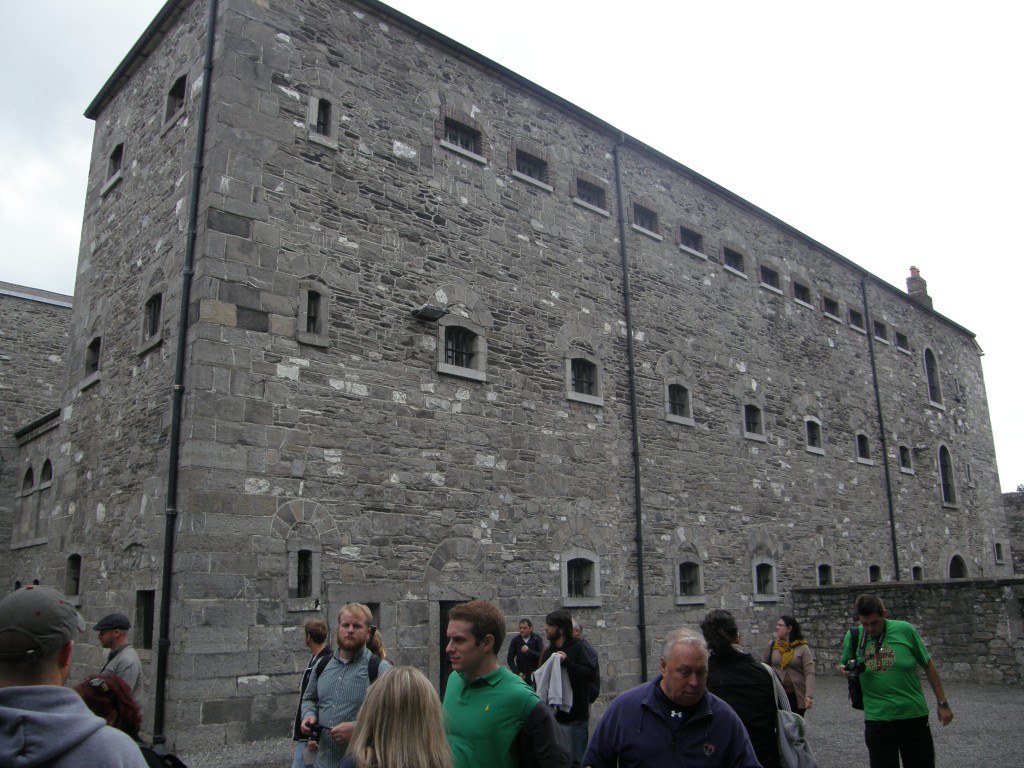
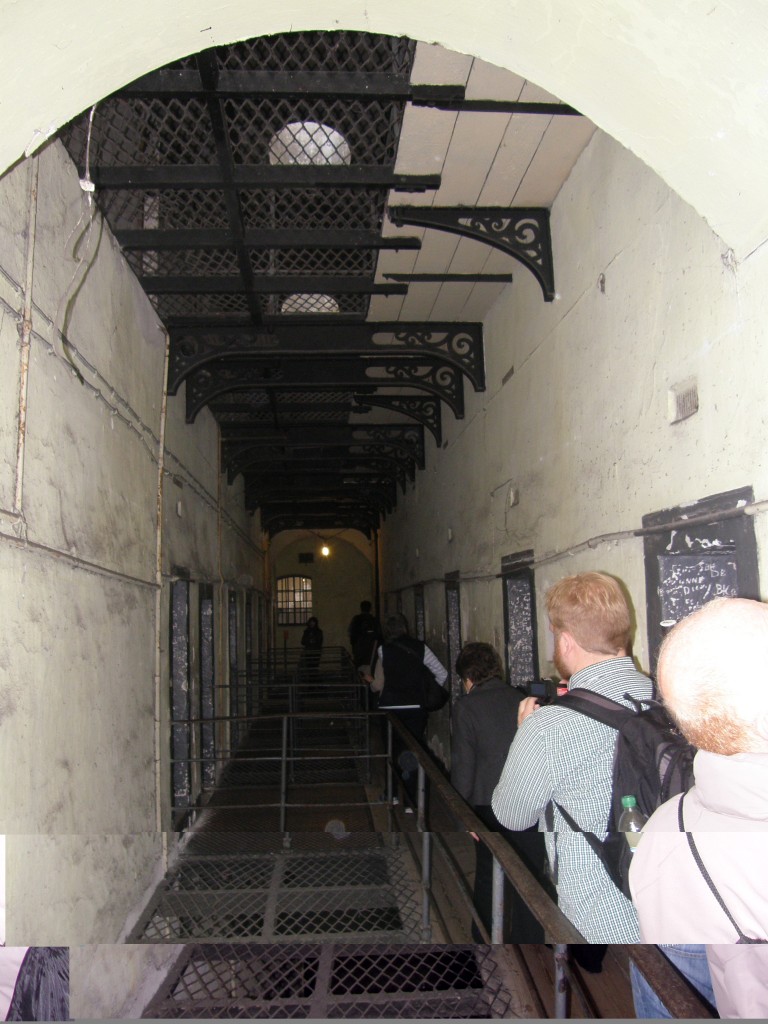
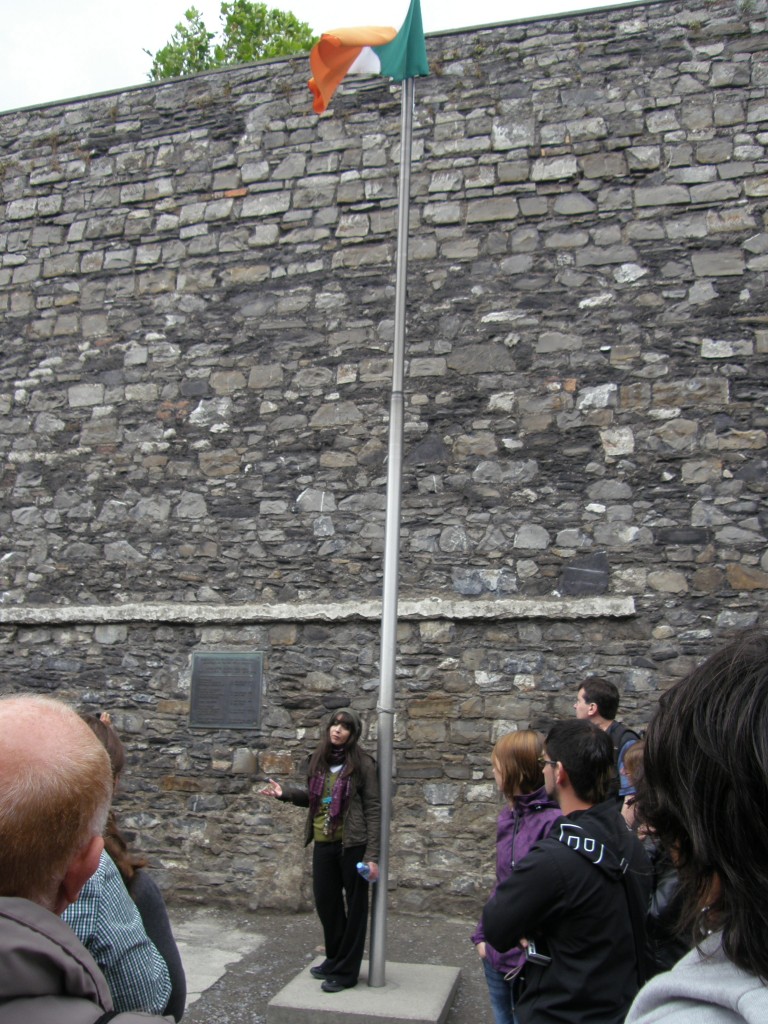
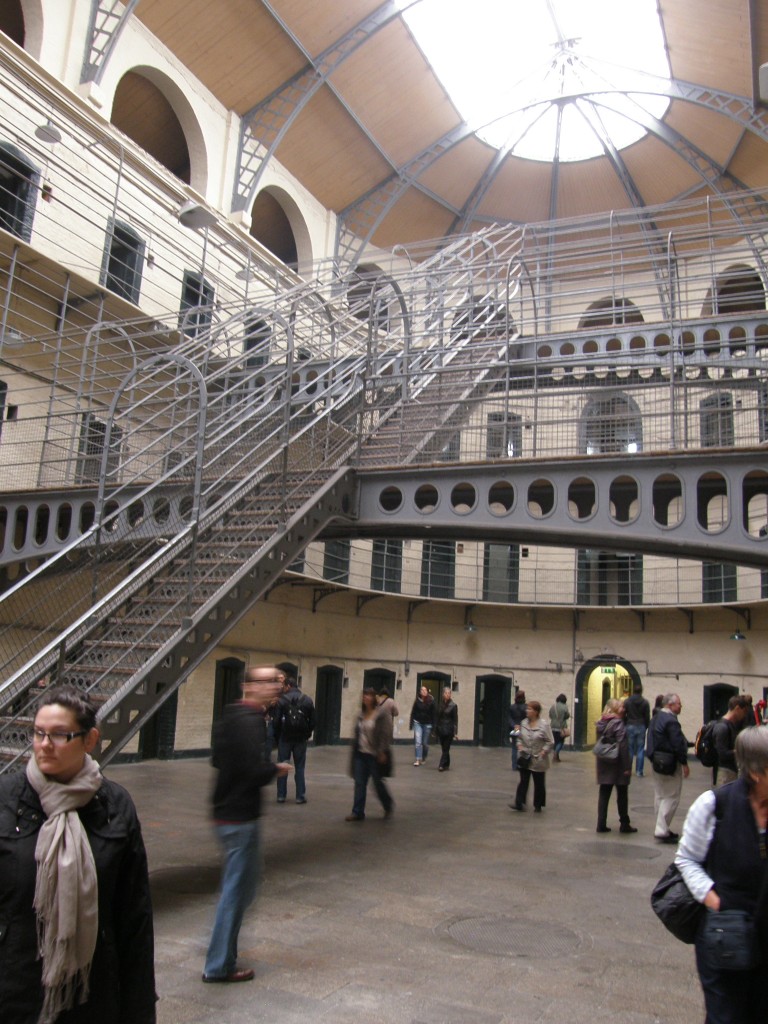
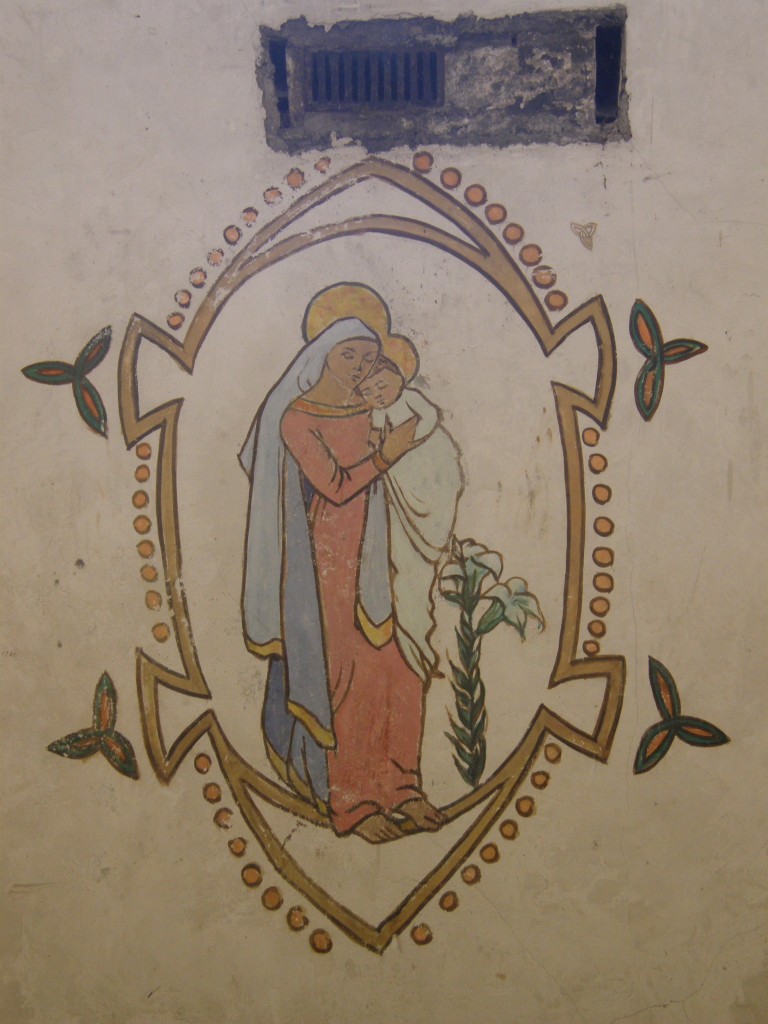




Great sermon, Eric. How did the congregation receive it on this 10th anniversary? Can we get you to preach it again next year (altho I know that the lessons will not be the same)?
Your illustrations highlight not only the ugliness, but the destructive and ultimately self-destructive nature of revenge. With such a poor historical record, why is it still such an attractive strategy? Why do we still struggle so hard to make the decision to forgive, instead of reacting vengefully? Thanks for a thought-provoking (and peace-provoking) sermon!
Thank you, Rosalind, for your comments and thought-provoking questions.
Hi Eric, Sorry I missed this last Sunday, the spoken word is always better. Thank you very much for your very truthful words.
Les – sorry to have missed you, as well. Did you go on the trip to Kilkenny? I hope the weather didn’t dampen the spirits of those who went.
The taliban protected Ben laden and pals…this female hating society was given a choice. They made the wrong decision. We absolutely were right in destroying Alqueda and their Taliban allies…perhaps we should turned the other cheek? I DON’T THINK SO!!! This kind of thinking is why we need seperation of church and state. BTW it was not revenge : IT WAS JUSTICE.
Eric. So many thanks for a mighty 9/11 sermon. Totally absorbing and we were all moved by the substance of your thoughts and by the free speaking style of your delivery.Patrick.